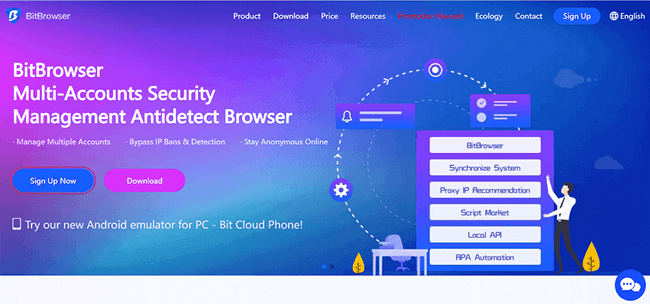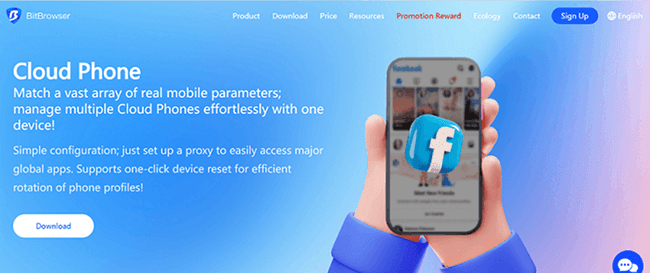
Hot Picks
How to Use BitBrowser for Multiple Bets?

Hot Picks
How to Automate Social Media Accounts

Hot Picks
How to Ensure Stable Facebook Operations When Managing Multiple Accounts
How Are Antidetect Browsers Redefining Online Research and Data Classification?
Time: 2024-10-23 10:35 Click:

In the ever-evolving landscape of digital research and data analysis, antidetect browsers are emerging as a game-changer, reshaping the way we conduct online investigations and categorize vast amounts of information. These specialized browsers, designed to evade detection and tracking by websites and online services, are not only enabling users to access information that would otherwise be inaccessible or blocked, but also facilitating more nuanced and comprehensive data classification.
This article explores the understanding of antidetect browsers, their transformative impact on online research, their role in supercharging data collection and classification, as well as the ethical considerations and challenges that arise from their use.
This article explores the understanding of antidetect browsers, their transformative impact on online research, their role in supercharging data collection and classification, as well as the ethical considerations and challenges that arise from their use.
Understanding Antidetect Browsers
Antidetect browsers are specialized tools designed to hide a user's digital footprint when browsing the internet. These browsers achieve this by altering key identifiers, such as browser type, operating system, IP address, and even browser fingerprints, making each browsing session appear unique and unrelated to the user's previous activities.
Essentially, they create virtual identities, allowing users to evade detection and tracking employed by websites, advertisers, and other online entities.
Essentially, they create virtual identities, allowing users to evade detection and tracking employed by websites, advertisers, and other online entities.
Antidetect Browsers Are Redefining Online Research
In the realm of online research, antidetect browsers are transforming the way information is gathered and analyzed. Users who previously had to contend with restrictions based on their browsing history or geolocation can now access a broader range of data sources without being flagged or blocked.
For example, market researchers can simulate different user profiles to gain insights into target audiences' browsing habits, preferences, and behaviors without revealing their true identities. This not only expands the scope of research but also enhances its accuracy and depth by eliminating biases introduced by personal browsing histories.
For example, market researchers can simulate different user profiles to gain insights into target audiences' browsing habits, preferences, and behaviors without revealing their true identities. This not only expands the scope of research but also enhances its accuracy and depth by eliminating biases introduced by personal browsing histories.
Antidetect Browsers Are Supercharging Data Collection And Classification
Data collectors and classifiers stand to benefit significantly from the use of antidetect browsers. By creating multiple, distinct browsing profiles, these tools enable users to gather vast amounts of data from various sources while avoiding rate limits, CAPTCHAs, and other anti-scraping measures. This capability not only increases the efficiency of data collection but also facilitates more sophisticated data classification.
For example, e-commerce competitors can use antidetect browsers to gather product pricing, reviews, and market trends from competitor websites, enabling them to refine their strategies and pricing models. Similarly, data researchers can use these tools to collect and analyze data from a diverse range of sources, improving the accuracy and robustness of their models and analyses.
For example, e-commerce competitors can use antidetect browsers to gather product pricing, reviews, and market trends from competitor websites, enabling them to refine their strategies and pricing models. Similarly, data researchers can use these tools to collect and analyze data from a diverse range of sources, improving the accuracy and robustness of their models and analyses.
Ethical Consideration and Challenges of Using Antidetect Borwsers

While antidetect browsers offer numerous advantages for online research and data collection, they also raise ethical concerns. The anonymity they provide can be exploited for malicious purposes, such as fraud, identity theft, and unauthorized access to sensitive information.
To address these challenges, it is crucial for users of antidetect browsers to operate within ethical and legal boundaries. This includes respecting website terms of service, avoiding the collection of sensitive or personal data without consent, and refraining from engaging in activities that harm others or violate the law.
To address these challenges, it is crucial for users of antidetect browsers to operate within ethical and legal boundaries. This includes respecting website terms of service, avoiding the collection of sensitive or personal data without consent, and refraining from engaging in activities that harm others or violate the law.
Conclusion
Antidetect browsers are redefining the landscape of online research and data classification by enabling users to conduct more comprehensive, efficient, and accurate studies while maintaining anonymity. However, their use must be approached with caution and ethical considerations to prevent potential harm to individuals, businesses, and society as a whole.

 Multi-Account Management
Multi-Account Management Prevent Account Association
Prevent Account Association Multi-Employee Management
Multi-Employee Management



